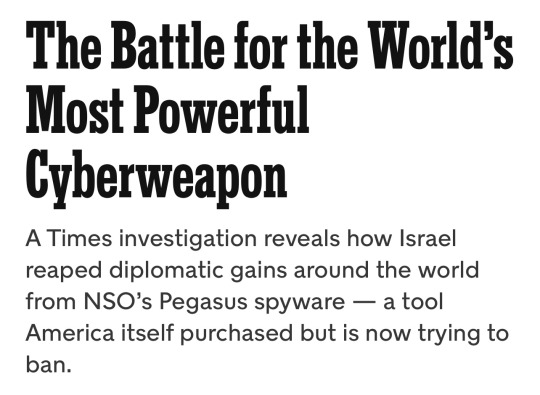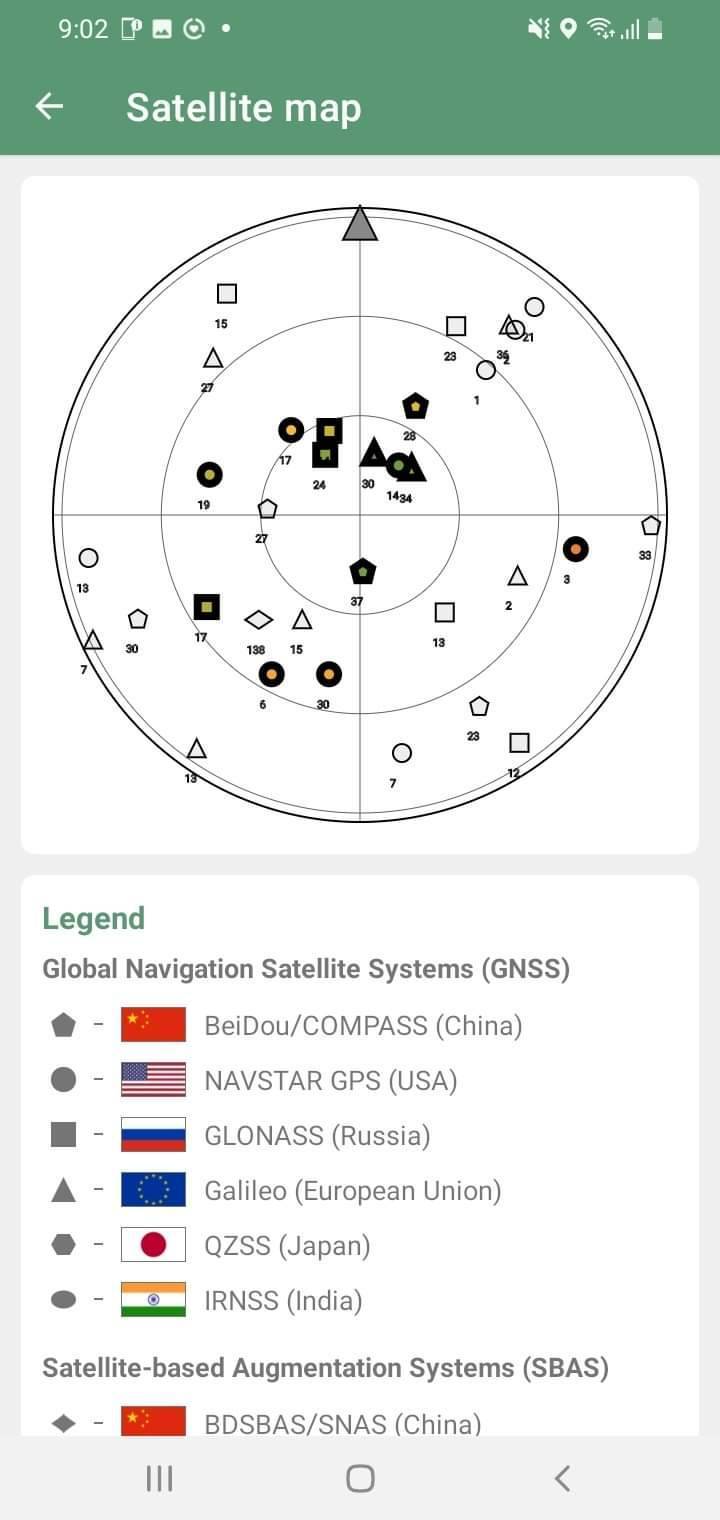#Cyber Warfare
Explore tagged Tumblr posts
Text

621 notes
·
View notes
Text
People being shocked that a big American conservative media network was actively being funded by Russia shows how little attention they actually pay to such thing
Many experts in cyber, hybrid and intelligence warfare have said for DECADES now that Russia does fund groups in other nations to produce propaganda for them shining a good light on Russia while attacking progressive values and anything even remotely anti authoritarian
If you actually watched the content they put out it was clear from the start they had an agenda and that someone was footing the bill with interests in Russia or for the Russian oligarchs
And it’s pretty sad that I have to point at the FBI and CIA and tell leftists “they told this YEARS AGO”
Also the “we didn’t know who funded us” is already being shoved as a narrative and it’s BS
#anarchist#russia#russian propaganda#Americans working for Russia#tim pool#us politics#hybrid warfare#cyber warfare#intelligence#fbi#cia
3 notes
·
View notes
Text

(source)
In June 2019, three Israeli computer engineers arrived at a New Jersey building used by the F.B.I. They unpacked dozens of computer servers, arranging them on tall racks in an isolated room. As they set up the equipment, the engineers made a series of calls to their bosses in Herzliya, a Tel Aviv suburb, at the headquarters for NSO Group, the world’s most notorious maker of spyware. Then, with their equipment in place, they began testing.
The F.B.I. had bought a version of Pegasus, NSO’s premier spying tool. For nearly a decade, the Israeli firm had been selling its surveillance software on a subscription basis to law-enforcement and intelligence agencies around the world, promising that it could do what no one else — not a private company, not even a state intelligence service — could do: consistently and reliably crack the encrypted communications of any iPhone or Android smartphone.
Since NSO had introduced Pegasus to the global market in 2011, it had helped Mexican authorities capture Joaquín Guzmán Loera, the drug lord known as El Chapo. European investigators have quietly used Pegasus to thwart terrorist plots, fight organized crime and, in one case, take down a global child-abuse ring, identifying dozens of suspects in more than 40 countries. In a broader sense, NSO’s products seemed to solve one of the biggest problems facing law-enforcement and intelligence agencies in the 21st century: that criminals and terrorists had better technology for encrypting their communications than investigators had to decrypt them. The criminal world had gone dark even as it was increasingly going global.
But by the time the company’s engineers walked through the door of the New Jersey facility in 2019, the many abuses of Pegasus had also been well documented. Mexico deployed the software not just against gangsters but also against journalists and political dissidents. The United Arab Emirates used the software to hack the phone of a civil rights activist whom the government threw in jail. Saudi Arabia used it against women’s rights activists and, according to a lawsuit filed by a Saudi dissident, to spy on communications with Jamal Khashoggi, a columnist for The Washington Post, whom Saudi operatives killed and dismembered in Istanbul in 2018.
(continue reading)
#politics#spyware#nso group#israel#pegasus#surveillance state#mass surveillance#privacy rights#cyber warfare
15 notes
·
View notes
Text
The Hacker's War's







#The Resistance#war never changes#MTK Terrorist#Qualcomm.inc#Cyber Terrorist#Cyber Warfare#The War#To Kill Stephano Dedaro and Family with Electronic Bombardments#Illegal Taxation without representation#The Lambda War's ⚠⚠⚠🎲⚔#72 Million Dollar Case File received connected to The Hackers War's#Earned A Service Reward and Purple heart on a technical level Fighting for my Country#OOOooooraaaah!#For the Alliance#my the God be with you Always... 👍✌👌🎲 GG#USRA Gaming
6 notes
·
View notes
Text
I'll Google Translate this one became this one is incredibly interesting and fascinating, especially for people who spend a lot of time online.
"An Israeli cyber group announced that it had taken down a Hamas news website: "We will continue to act with a heavy hand"
WeRedEvils is a group of Israeli cyber warriors that was established after the start of the war and operates in the cyber arena against Hamas and its affiliates, and yesterday announced that it had taken down a major news site affiliated with Hamas, Gaza Now. In a conversation with mako, one of the group's managers tells about its activities: "We hacked into the phones and WhatsApp accounts of journalists, terrorists and Hamas officials and published databases of 40 million Iranians"
The group of cyber warriors @WeRedEvils yesterday attacked the GazaNow site, the main news site of the terrorist organization Hamas, which publishes anti-Israeli content, and information about IDF and intelligence operations. The site went down for 18 hours, came back up for a short time and is now working again, but according to the group's servers are expected to collapse within hours again.
WeRedEvils are a group of about 80 Israeli cyber warriors, who have been working since the beginning of the war on a voluntary basis, and take part in the war aid effort. These are former intelligence unit 8200, owners of major cyber companies in Israel, private investigators and Red Hat hackers. The group is closed, and everyone who enters it has undergone a full scan, according to P. G., one of the group's managers, who served as the IDF spokesman and deals with cyber, and asked to remain anonymous. According to him, the group is divided into several teams - intelligence and information gathering, attack, marketing and advertising and social media.
"We hacked and took down Hamas's largest news site, we hacked into the phones and WhatsApp accounts of Hamas journalists, terrorists and senior Hamas officials and published databases of 40 million Iranians," says G. to Mako. "We blocked crypto accounts and websites for receiving funds that Hamas established, we closed a website for them that raised half a million dollars. We took down the website of the Hamas Employment Ministry and we will continue to act with a tough hand."
According to him, "We will continue to attack. We have a list of 200 very important sites for Hamas that we will not release until we disable them."
Does the government help you or do you work alone?
G: "The government doesn't help, because no one has a way to contact us. Right now I'm talking to you from a servant who sits on another country, purely because one of the managers asked, and we have enough money and tools to use it."
Did you give messages to Hamas?
"We gave a message to one of the journalists to stop publishing, otherwise we hack into his phone and WhatsApp, he did not respond to our requests and we attacked and stopped his activity. We are not giving a message to anyone anymore, we attack and stop activities that the SHABACH is unable to do."
This is not the only initiative by cyber experts to attack Hamas government websites, and there are different groups, isolated from each other, that operate in the field. "All the websites of Hamas and their supporters have fallen in recent days, and will fall again if the sites are brought back online," says one of the Israelis active on the issue.
And what about cyber attacks on Israel? At the beginning of the war, rumors were spread through the WhatsApp groups about a cyber attack on Israel, but the national cyber system emphasized that no such attack existed. Since then there have been attempts to break into Israeli websites, but no significant achievement has been recorded for Hamas on this level.
[On a personal note I cannot in any way verify or deny this, apart from it being on a large popular mass media outlet. BUT, the 8200 unit are the cyber intelligence of IDF and are highly regarded. A group of them formed a resistance to the current government and have been acting on that front for months. So it may be them or their colleagues]
3 notes
·
View notes
Text
China’s cyber army is invading critical U.S. services
2 notes
·
View notes
Text
तीसरा विश्वयुद्ध: क्या दुनिया संकट के कगार पर खड़ी है? एथोस सलोम की चौंकाने वाली भविष्यवाणी
Third World War: दुनिया भर में बढ़ते तनाव और अस्थिरता के बीच एक बार फिर तीसरे विश्वयुद्ध की आशंका ने लोगों के मन में खलबली मचा दी है। ब्राजील के मशहूर भविष्यवक्ता एथोस सलोम, जिन्हें ‘जीवित नास्त्रेदमस’ के नाम से जाना जाता है, ने हाल ही में चेतावनी दी है कि वैश्विक परिस्थितियां तेजी से एक बड़े युद्ध की ओर बढ़ रही हैं। 38 वर्षीय सलोम ने कोविड-19 महामारी और रूस-यूक्रेन युद्ध जैसी घटनाओं की सटीक…
#Athos Salomé#Baltic Sea Conflict#China vs America#Cyber Warfare#Digital Communication Impact#Economic Instability#Hybrid War#Mirror Report#Optical Fiber Cable Damage#Third World War
0 notes
Text
ATTACK OF THE TECHNO SWAMP BEAVER!
In 1899, a rodent from South America was intentionally introduced into California in the hopes of producing a market for its fur. When demand for the fur proved soft, breeders released this relative of the beaver, also known as the nutria, into the wild. Wildlife agencies then introduced the nutria into other parts of the US as a way to control noxious weeds. This animal is now considered one…

View On WordPress
#CIA#computer#cyber warfare#essay#flame#Iran#Israel#Microsoft#software#stuxnet#Technology#thoughts#U.S.#virus#worms#Writing
0 notes
Note
okay I’m really sorry if this comes across as tone deaf or ignorant or anything but I know what’s happening to Gaza but you’re the first person I’ve seen mention Lebanon. What’s happening?
tldr: israel exploded 4000+ pagers and walkie talkies all at once in lebanon, most likely contaminating a shipment and rigging it. thousands injured, 37+ dead. western media is praising the act as coordinated, targeted attack on hezbollah. doctors (who primarily use pagers), civilians, 10 year old children playing with their father's pager lost an eye, finger, died. millions in lebanon currently afraid to use their devices in case it might explode, the definition of a terrorist attack on a civilian population
189 notes
·
View notes
Text

163 notes
·
View notes
Link
Indian Navy’s Mega Theatre-Level Exercise Validates War Strategies. #TROPEX2025 #IndianNavy #MaritimeSecurity #NavalExcellence #AmphibiousWarfare #CombatReady #Rakshamantri #RajnathSingh #defence #defenceindustry #navypro #IAFPRO #armypro #PMO #PMOIndia #bignewshouse #bignews #news #viralnews #fb #insta #gameplan #defenceindustry #AeroIndia2025 #aeroindiapro
0 notes
Text
The Evolving Tactics of Beijing: A New Era of Grayzone Warfare
A Social Media Review by: Sundance Baybay City | January 31, 2025 As the world witnesses a growing assertiveness from Beijing, South China Sea intelligence operative Ray Powell highlights a significant shift in China’s approach to international relations. He asserts that China is now employing full-spectrum grayzone tactics, veiled in thin layers of opacity and deniability. This marks a notable…
#assertiveness#china#cyber warfare#deniability#geopolitics#global response#grayzone tactics#international outrage#International Relations#lawfare#Maritime Disputes#normalization of aggression#opacity#policy implications#Ray Powell#reputation costs#risk assessment#South China Sea#strategic evaluation#territorial disputes
0 notes
Text
We have abjectly surrendered to Russia. I know most Republicans hate Democracy so much they'd rather be a Russian satellite country, because if they didn't they wouldn't have voted to Trump, and nearly all the Republican Senators are all in on exposing their bellies and pissing themselves if Putin even looks like he might rub their bellies and call them good boy, because if they didn't they wouldn't have put Pete Hegseth in charge of our military, but it still feels bizarre that Republicans didn't have even a sliver of patriotism left to prevent this.
#Donald Trump#Defense Secretary#Pete Hegseth#Cyber Command#Russia#Cyber Security#Cyber Warfare#News#U.S. Cyber Command
2 notes
·
View notes
Text
Cyber Warfare Market Overview
The global market of cyber warfare is presently under rapid growth, being facilitated by continuously advanced nature of the threat of cyber-attacks along with dependence of global defense on its infrastructure. The entire security scenario of these forces involves substantial spending on cutting-edge protection products for data, thereby augmenting its size massively in the global market of cybersecurity. Emerging technologies such as AI, ML, and quantum computing are part of cyber-defense strategies today. It increases their ability to detect threats as well as respond. Many key players are establishing strategic partnerships and investing greater R&D efforts in such areas with the growing demand of the nature of Cyber Warfare. This market will help shape future modern warfare for sure because of strong growth in its regions such as North America, Europe, and Asia-Pacific.
#Cyber Warfare#Cyber Warfare Market#Cyber Warfare Industry#Global Cyber Warfare Market#Cyber Warfare Market Companies#Cyber Warfare Market Size#Cyber Warfare Market Share#Cyber Warfare Market Growth#Cyber Warfare Market Statistics
0 notes
Text
Jade Ann Byrne’s Tactical eGirl Energy Loadout: Hydro Flask Infusion Meta – Cuties Rinds, Tazo Wild Sweet Orange, & Warzone Mobile Buffs
Jade Ann Byrne’s Tactical eGirl Energy Loadout: Hydro Flask Infusion Meta – Cuties Rinds, Tazo Wild Sweet Orange, & Warzone Mobile Buffs Welcome to the Ultimate IRL Loadout – The Citrus-Infused Hydro Flask Meta Listen up, Operators. If you’re trying to clutch the Gulag, dominate Ranked, and survive sweaty late-night lobbies—you need more than aim and movement. You need hydration that hits like…
#ArtbyJadeAnnByrne#bedrock#bedrock Minecraft#caffeine-free energy#CarePackage#Chaos and Destruction#ciberseguridad#citrus biohacking#clandestine operations#clutch moments#CODMChallenge#contractor militar privado#contractor privado militar#contractors privados#cyber intelligence#cyber warfare#cyberpunk aesthetics#cybersécurité#defensa cibernética#digital soldier#digital warfare#duel challenge#eGirl energy#eGirl4Rent#eGirl4Rent PMC#egirl4rent server#espions numériques#Esports#esports nutrition#eSports team
0 notes